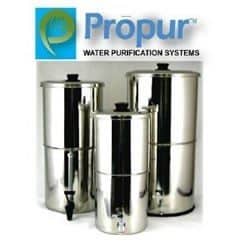Bottle Water…Better or Worse
Drinking plenty of good, clean water is important for a healthy body. Read EWG researchers’ top tips to learn how to stay hydrated while cutting down on your exposures to common drinking water pollutants.
Bottled water
Drink filtered tap water instead. You can read the bottle label, but you still won’t know if the water is pure, or just processed, polluted, packaged tap water. EWG found 38 contaminants in 10 popular brands.
Tap water
Learn what’s in it. Tap water suppliers publish all their water quality tests. Bottled water companies don’t. Read your annual tap water quality report. Look up your city’s water in EWG’s National Tap Water Atlas. (Private well? Get it tested.)
Filtered tap water
Drink it, cook with it.
•Choose a filter certified to remove contaminants found in your water: http://www.ewg.org/tap-water/getawaterfilter. Effectiveness varies – read the fine print.
•Carbon filters (pitcher or tap-mounted) are affordable and reduce many common water contaminants, like lead and byproducts of the disinfection process used to treat municipal tap water.
•If you can afford it, install a reverse osmosis filter to remove contaminants that carbon filters can’t eliminate, such as chromium-6, arsenic and perchlorate (rocket fuel).
Filters
Change them. Change your water filters on time. Old filters aren’t safe – they harbor bacteria and let contaminants through.
On the go
Carry water in safe containers. Hard plastic bottles (#7 plastic) can leach a harmful plastics chemical called bisphenol A (BPA) into water. Carry stainless steel or other BPA-free bottles. Don’t reuse bottled water bottles. The plastic can harbor bacteria and break down to release plastics chemicals.
While Pregnant
Stay hydrated with safe water. It’s especially important for women to drink plenty of water during pregnancy. Follow all the tips
above, and take your doctor’s advice on how much to drink.
Infants
Use safe water for formula. Use filtered tap water for your baby’s formula. If your water is not fluoridated, you can use a carbon filter. If it is, use a reverse osmosis filter to remove the fluoride, because fluoridated water can damage an infant’s developing teeth. If you choose bottled water for your infant, make sure it’s fluoride-free. Learn more at www.ewg.org/babysafe.
Breathe Easy
Use a whole house water filter. For extra protection, a whole house carbon filter will remove contaminants from steamy vapors you
and your family inhale while showering and washing dishes.
Oh well for all of those plastic bottles WE ALL seem to have in our grasps at all times. We leave them in the darndest places. In our cars ( where they are subjected to extreme heat ), or in our freezers ( so that they will be ice-cold ). Both ways will allow the water to leach contaminants from the plastic bottle itself. Makes me want to go buy one right now and put it in the freezer. Just my thoughts.
kcasrkev
http://goo.gl/F9AOH





You did not answer the question what contaminates is in the water brands?? Which ones have what contaminates?